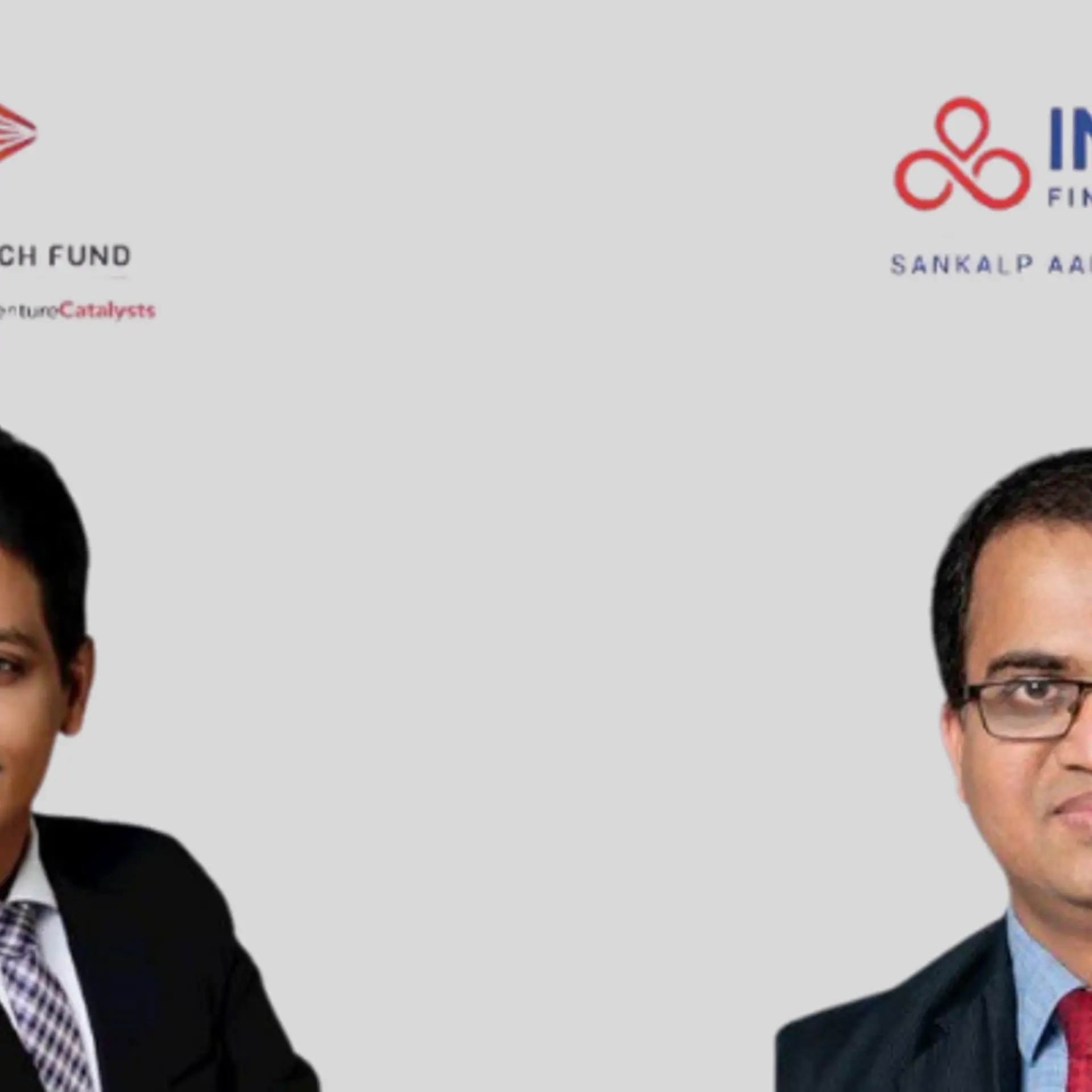Coping with COVID-19: From ChhotaLoan to ChhotaBima
ChhotaLoan had hit upon a terrific business opportunity – giving loans to blue-collar workers who were out of the CIBIL net. Until it was hit by COVID-19. But the founder figured out a way to pivot the business, survive the pandemic, and even raise the next round of funding.
What’s the first thing that happens when you start an important meeting? Or even better, when you are blissfully snoring as part of your well-deserved mid-morning nap? That’s right – you get a phone call from some call centre. “Vaary Good Maarning Saar. I’m calling from People’s Bank. Saar do you need a car loan?”
It’s another issue that you already have a relationship with People’s Bank, and have taken a loan from them. Obviously, the call centre is not expected to know such silly details. However, the point is that every bank and every NBFC is literally falling at your feet, begging you to take their money. Not too many questions asked – just take the money please. It’s so easy to get a loan. Right?
Wrong! What if you were a driver earning Rs 15,000 a month? Or a security guard, or an office boy, or just about any blue-collar worker in that kind of bracket? Then, it is not so easy. Most important, they do not have any past track record, and therefore, no CIBIL score. So, how can the lender evaluate the risk of lending to them?
Fortunately, a few smart entrepreneurs changed that a few years back. And this is the story of one such person – Bishambar Kumar Sultan Chand C.P. Ghotala, who we will simply refer to by his cute nickname Ghotu – and his startup ChhotaLoan. Now as you are aware, all lenders check the CIBIL score of potential borrowers and then decide whether or not to lend to them.
But here’s the problem – Ghotu’s target audience did not have any past loans. Or if they did, they were perhaps taken entirely in cash from the local money lender – with our formal system being blissfully unaware of what was going on. Therefore, CIBIL had no chance to add this data to their database.
Now, Ghotu was smart. He realised that two very important issues needed to be checked before giving a loan. One obviously was the ability to repay the loan, and the other one was the intention to pay. As far as ability was concerned, he realised that our ubiquitous mobile phones provided a gold mine of data. All he had to do was to read the SMS-es that the potential borrower was getting. And from these messages, he was able to check two things. First of all, was the borrower getting a regular salary every month? Secondly, what were his expenses?
The important issue was, if the borrower were spending most of his income anyway, he was a credit risk, because he would then not be able to pay his EMIs.
The tougher issue was to figure out his intention to pay. Here, Ghotu was very clear. The only solution was ‘FEAR’. First of all, each tiny loan taken by the borrower went into the CIBIL database. And even more important, the borrower was educated about it.
“If you don’t pay it back, you’ll get a bad score and you won’t be able to take a loan in the future,” was the message. And this worked brilliantly. You see, for people like you and me, taking a loan is often a ‘nice to do’ thing – maybe we want a bigger TV, or a car, or that brand new iPhone. But for the have-nots, a loan is often a desperate need. Perhaps to rebuild a roof that has collapsed. Or to treat a family member in hospital. And they are very, very careful not to mess up their chances of taking a loan in the future.
And this is what Ghotu was banking on. Along with the several NBFCs who simply jumped at the idea. These NBFCs would provide the loans, and ChhotaLoan would sell them through an extremely easy-to-use app. The initial evaluation of risk would be done by ChhotaLoan, and therefore only shortlisted candidates would be put up to the NBFC. Based on this, the NBFC would use its own risk metrics, and take a final call on the loan. And of course, in this whole process ChhotaLoan would pocket a decent commission. As you can imagine, it worked brilliantly…
But that’s not really the story I wanted to tell you. The real story starts now. Because then COVID-19 hit the world. And with it, the entire business model of ChhotaLoan. Why? NBFCs – especially the small ones – were not able to get money to lend. And many of them shut shop, even if it was temporary. And without the backing of his NBFC partners, Ghotu had no money to lend. His great business model, where he made small ticket loans available to the poor, simply collapsed.
But Ghotu refused to give up. Instead, he went into thinking mode. How could he pivot the business so as to survive? Even better, could he grab an opportunity thrown up by the pandemic. And suddenly, he had a brainwave. He realised that with COVID-19 shaking up the world, health had suddenly become a high priority for mankind.
Everyone was surrounded by relatives, friends, acquaintances who had to go into hospital for treatment. And here was the key — hospitalisation for many people is covered by health insurance, but what about the have-nots? What about the entire blue-collar workforce that ChhotaLoan was catering to? They would love to get their treatment at a good hospital, if only they had insurance to cover the cost of treatment. But they simply couldn’t afford the premium involved.
And this is where Ghotu had the second part of his brainwave. What if health insurance companies were willing to take their premiums in easy to pay EMIs? He spoke to a few insurance companies, and at least two of them jumped at the idea. “Why not? Let’s try it out!”
And so, with a lot of fanfare, Ghotu launched ChhotaBima, where he would target the same class of people, but not for loans. For health insurance to be paid for in easy installments. The market simply lapped it up, and Ghotu survived the crisis. Now that many NBFCs are back in action, he has two independent business lines – selling loans and selling health insurance policies.
For a long time, Ghotu had been desperate to get additional funding to grow his business. Unfortunately, investors simply refused to bite. But after seeing Ghotu as a founder who wouldn’t give up, changed their mind. After all, that is what investors look for. Founders who are able to last through adversity, who find an opportunity in a crisis and grab it with both hands.
Suddenly investors started chasing him, and when I last checked, he was sitting with an investor in a café near my house, about to close a decent round of funding.
Edited by Saheli Sen Gupta
(Disclaimer: The views and opinions expressed in this article are those of the author and do not necessarily reflect the views of YourStory.)







